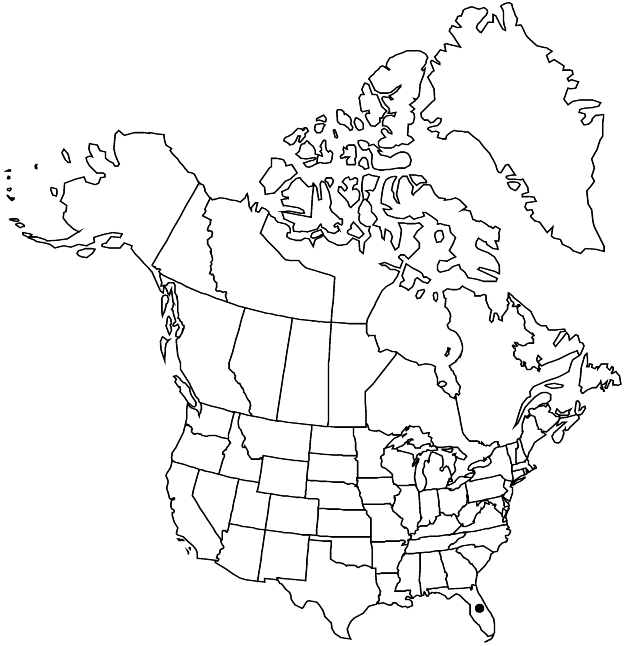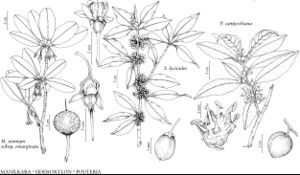Pouteria campechiana
Candollea 9: 398. 1942,.
Common names: Canistel zapotillo zapote blanco
Basionym: Lucuma campechiana Kunth in A. von Humboldt et al., Nov. Gen. Sp. 3(fol.): 188; 3(qto.): 240. 1819
Synonyms: Lucuma nervosa A. de Candolle
Revision as of 20:29, 24 September 2019 by FNA>Volume Importer
Trees to 8 m. Leaves: petiole 10–25(–45) mm, finely hairy; blade elliptic to oblanceolate or obovate, 80–250(–330) × 30–80(–150) mm, margins revolute. Pedicels 6–12 mm, densely hairy. Flowers: sepals ovate to suborbiculate, 4.5–11 mm; petals 8–12 mm, tube 5–6(–8) mm; staminodes petaloid, 2–4 mm. Berries 25–70 mm, apex short-rostrate, surface smooth. Seeds 1–6, 20–40 mm.
Phenology: Flowering mid summer.
Habitat: Hardwood hammocks
Elevation: 0-5 m
Distribution

Fla., Mexico, West Indies (Cuba), Central America.
Discussion
Pouteria campechiana, native from Mexico to Panama, is frequently cultivated and escaped or persistent in the West Indies and Florida.
Selected References
None.
Lower Taxa
None.
